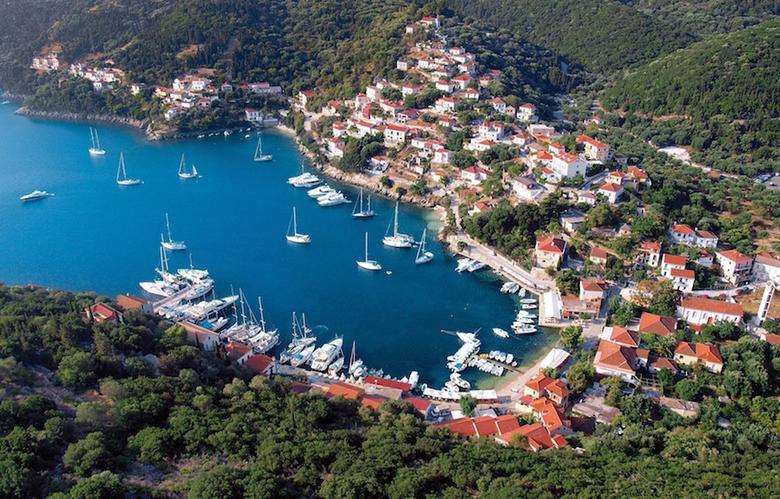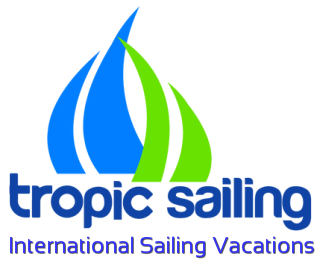 Famous all over the world as the homeplace of Odysseus, the mythical hero of Homer, Ithaca Greece is an iconic island - carpeted with lush greenery, dotted with quaint villages and exotic beaches, Ithaca island oozes charm in abundance. Every bit as rugged, romantic and all-round epic as its role in Homeric legend would suggest, Ithaca or Ithaki (in Greek) is something special. The hilly, sea-girt homeland to which Odysseus struggled to return for 10 heroic years continues to seduce visitors with its ancient ruins, breathtaking harbour villages and wilderness walks. Squeezed between Kefallonia and the mainland, it’s the kind of island where time seems to slow down and cares slip away. Cut almost in two by the huge gulf that shields Vathy, its main town, Ithaki effectively consists of two separate islands linked by a narrow isthmus. Vathy is the only significant settlement in the south, while the mighty northern massif holds delightful villages such as Stavros and medieval Anogi, and is peppered with little coves holding pocket-sized resorts such as Frikes and Kioni. Much of the island has been reconstructed after a devastating earthquake hit the Ionian in 1953. The only way to truly discover this region is by yacht, once on the open sea your only next human contact will be of your choosing as you gently harness the afternoon’s sea breeze to seek out your private anchorage for the night. Conditions are predictable and easy to navigate and — with many small coves, caves and beaches where a yacht can anchor or long line off — chances are you’ll be alone in your self-made berth to swim, fish or explore. This region of Greece is not the whitewashed villages - but rather lush green islands of cyprus and elm trees and flowering herb shrubs growing wild. The islands were settled by Greeks before Macedonian rule then annexed by the Roman Empire where they remained for 400 years before the Byzantine Empire in the mid 8th century. From 1204 they fell to Venetian rule, the islands the only part of the Greek speaking world to escape Ottoman rule, thereby defining their fierce independence and place in the Greek story. Many islands are still dotted with Venetian lighthouses and ruins. In Polis, the remains of a Byzantine town were found in the beachside Cave of Loizos, now largely underwater. With 3,000 permanent inhabitants and not much in the way of infrastructure, little has changed since Odysseus was king of this island. Mountains studded green with pine trees, beaches of tiny white pebbles bordered by soaring cliffs and water so colourful it could have kept Monet occupied for decades. The island’s beauty will leave an indelible mark in your mind, and there is a quiet majesty here that tends to permeate everything. Take in small villages lined by olive trees – some thousands of years old – the sound traditional fishing boats in the harbour, where proud seafarers display their catch, or the distant echo of the wind travelling through forests. You’ll find the setting fosters a sleepy, refreshing kind of peace. It's a raw, unspoilt countryside, where donkeys still toil the land and farmers not only pick their own produce but sell it off the back of their trucks. Old men with craggy faces sit in their local cafenion flicking their worry beads over their hands, just as they’ve done for decades. The irony is, there’s nothing to worry about. Nothing at all. Yet they come daily. To sit and pontificate, to sip minuscule cups of thick, sweet coffee. They watch the modern world come and go. This is the Greece of old, it does still exist on the Ionian island of Ithaca. Ithaca is included in all one week itineraries sailing Lefkas, and two week itineraries ex Corfu.
0 Comments
|
Patrick CarpenterSkipper/Guide, Manager Archives
May 2020
|
FB @tropicsailing - instaGRAM #tropicsailing
contact@tropicsailing.com - PHONE/WHATSAPP +64 21 948041
contact@tropicsailing.com - PHONE/WHATSAPP +64 21 948041
"Twenty years from now, you'll be more disappointed by the things you didn't do than by the ones you did.
Throw off the bow lines, sail away from safe harbour, catch the wind in your sails
DREAM, EXPLORE, DISCOVER" - Mark Twain
All Rights Reserved - Tropic Sailing 2006-2024
